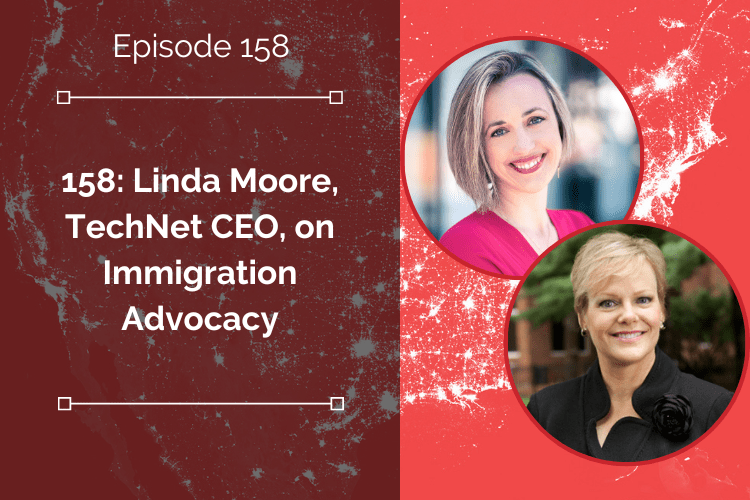As a seasoned veteran of the White House, Capitol Hill, and five presidential campaigns, TechNet CEO Linda Moore offers insightful perspectives on the aspirations and challenges of the U.S. tech industry, the importance of high-skilled immigration reform, and the future of AI policy.
Aspirations and Challenges of the U.S. Tech Industry
- The U.S. tech industry aspires to remain competitive globally by attracting and retaining the best talent. This is made possible through the bipartisan network, TechNet, which educates policymakers about the industry’s objectives and challenges.
- There is a significant skills gap in the U.S. tech industry, with millions of jobs going unfilled, potentially leading to a loss in productivity worth trillions. High-skilled immigration reform is seen as a solution to this problem.
- Policymakers are recognizing the importance of immigration reform in filling this skills gap and driving economic growth. There are various proposals for immigration reform that aim to attract global talent and foster innovation in the U.S. tech industry.
- The industry faces challenges in navigating immigration policies and reforms, as well as potential risks associated with AI deployment. The tech industry needs to continually adapt and innovate to address these challenges and achieve its aspirations.
The Importance of High-Skilled Immigration Reform
- High-skilled immigration reform is crucial to fill the vast skills gap in the US job market. Without addressing this gap, there will be millions of unfulfilled jobs leading to a significant loss in productivity. One proposed solution is the Dignity Act, which seeks to convert the F1 student visa into a dual intent visa, enabling international students to make the US their career home.
- Tech companies have a role in championing high-skilled immigration reform. By educating policymakers about the aspirations and challenges of the US tech industry, they aim to push for policies that would facilitate high-skilled immigration and access to STEM education.
The Future of AI Policy
- The future of AI policy in the U.S. is set to involve a great deal of regulation, with both the Biden administration and Congress working on measures to ensure safe, responsible AI deployment. These measures are aimed at fostering partnerships between U.S. tech companies and regulators worldwide to set standards for AI.
- The AI policy is likely to have a significant impact on the medical field, with AI being harnessed for medical breakthroughs.
- AI policy will also play a crucial role in driving tech entrepreneurship. Aspiring tech entrepreneurs are encouraged to believe in themselves and the potential of the U.S. to develop the next big thing in tech.
The U.S. tech industry’s competitiveness relies on attracting and retaining top talent through immigration reform, while addressing the skills gap and navigating AI deployment challenges. Advocating for reform, facilitating STEM education, and fostering collaborative partnerships will shape the future of AI policy and secure the industry’s global leadership.
If you want to learn more about Sophie Alcorn Podcast, check out https://www.alcorn.law/podcast/sap158


